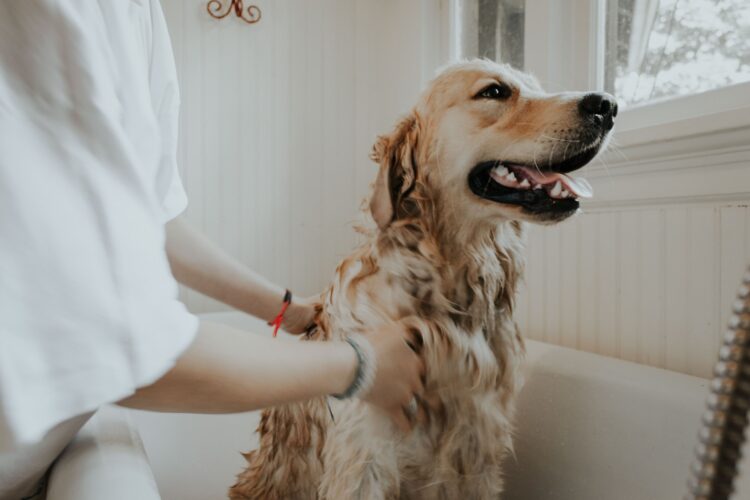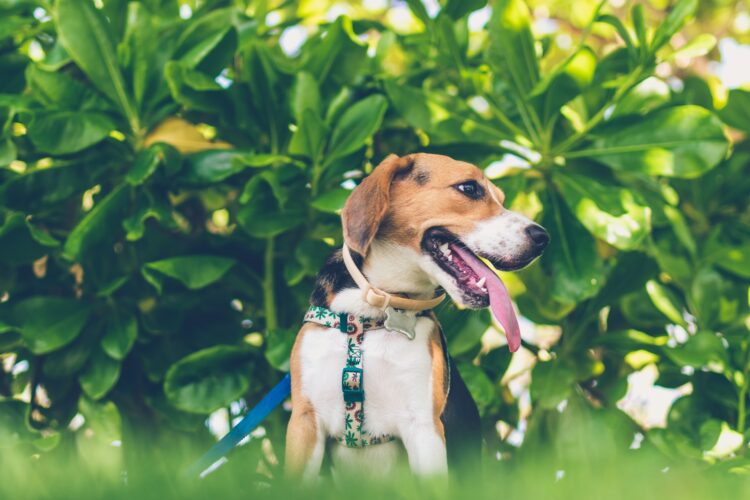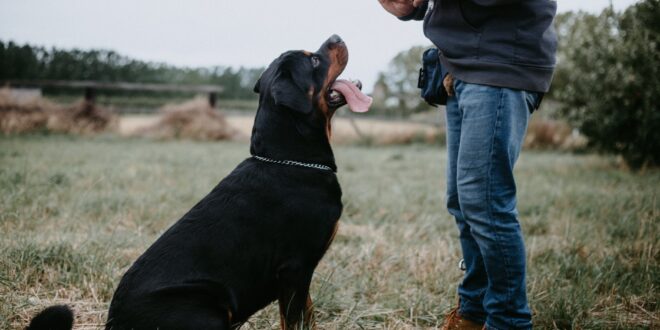As a dog owner, you probably want the best for your furry friend – it doesn’t matter if it’s a puppy that you adopted just a few weeks ago, or if it’s a senior dog that was by your side for the last fifteen years.
However, just like people, dogs also get sick. As experts from MySweetPuppy notice, “dogs have many more treatable illnesses than any other pet,” which is why it’s important that you keep a close eye on your four-legged friend. Dogs experience a lot of illnesses that humans do – for example, they can get cancer just like we do, or they can get dementia.
Senior dog dementia is what we will be focusing on in this article. So, if you want to know more about senior dog dementia, what is it, what are the symptoms, and how can you treat it, all you have to do is keep reading. Without any further ado, let’s just jump right into it.
What is dementia and what are the causes?

Dog dementia is also known as Canine Cognitive Dysfunction (CCD). It is a condition connected with the aging process, of which effect can be compared to the ones of Alzheimer’s in humans. It affects memory, comprehension, and learning.
However, Leticia Fanucchi, the director of Veterinary Medicine Behavioral Services at Washington State University’s Veterinary Teaching Hospital, says that CCD can be categorized into four main types. Those are:
- Involutive depression – very similar to chronic depression humans experience, usually results in anxiety
- Dysthymia – confusion, disorientation; sometimes can cause your dog to lose the conscious awareness of its body
- Hyper-aggressiveness – involving the serotonin levels in the brain; most commonly results in the aggressive behavior of your furry friend
Confusional syndrome – the closest to Alzheimer’s in people, results in a decline in your dog’s brain cognitive functions
We don’t know what exactly causes it. However, as we already mentioned, many experts in the field associate it with the brain changes that happen when the dog is aging. Another thing that can be considered as one of the causes of dementia is genetic factors or other conditions. This includes brain tumors or brain trauma.
The Symptoms

Dog dementia can have several symptoms, which is why sometimes it is difficult to determine by yourself whether this is actually what is happening to your furry friend. Here is a list of some of them:
- Disorientation and confusion – even if present in a familiar surrounding, your dog might appear lost, or very confused
- Anxiety
- Decreased desire to play
- Aimless wandering
- Slow to learn new tasks
- Lack of self-grooming
- Loss of appetite
- Not responding to its name or familiar commands
- Staring blankly at walls or at nothing
Depending on the development stage of dementia, these symptoms might begin as mild but gradually worsen over time. Since senior dogs are known for decreased energy levels, it is very easy to misunderstand the symptoms of dementia as ‘just getting old.’
Early recognition is very important, which is why if you notice any of those symptoms in your senior dog, you should immediately contact a professional. A veterinarian will be able to perform a full physical evaluation and confirm whether it is actually dementia or just tiredness that comes with your dog getting older. It’s always better to be safe than sorry, don’t you think?
The Treatment

Unfortunately, at the moment, there is no known cure for dementia. However, there are several ways in which you can treat it. Those include prescription drugs, life enrichment, supplements, diet changes, and even surgery. To know which option will be the best for your elderly dog, consult a veterinarian – never decide for yourself when it comes to serious issues like this, as, while wanting to help, you might cause more harm than good.
Here are some things that you, as an owner, can do for your senior dog suffering from dementia:
Keep walking with him – do not reduce the amount of physical activity it gets. If they can’t walk, use a stroller or a wagon, but keep going outside.
- If necessary, use diapers, waterproof bedding, or pads.
- Pet-proof your house, just like you would with a new puppy.
- Avoid rearranging or changing the furniture in your house – when it comes to dementia, it is important to keep the dog’s surroundings as familiar as possible.
- Give them as much love as you can.
- Try switching your furry friend’s diet to senior dog food or whole food natural diet.
Even though this will not cure dementia they are suffering from, it might actually help them more than you think.
The Bottom Line

There’s no denying that dogs are humans’ best friends. We treat them like family members and love them just as much. However, as heartbreaking as it is, dogs also can get sick – sometimes terminally.
Just like people get cancer, so do dogs. People can get dementia, and the same goes for our furry friends – with senior dogs, the matter is more complicated, as the symptoms can often be mistaken as the aging process.
We know how important early recognition is, which is why we created this short guide about everything you need to know when it comes to senior dog dementia. If you have any suspicions that it might be the case for your dog, don’t hesitate to contact the vet. Remember – it’s always better to be safe than sorry.
 Hi Boox Popular Magazine 2024
Hi Boox Popular Magazine 2024



